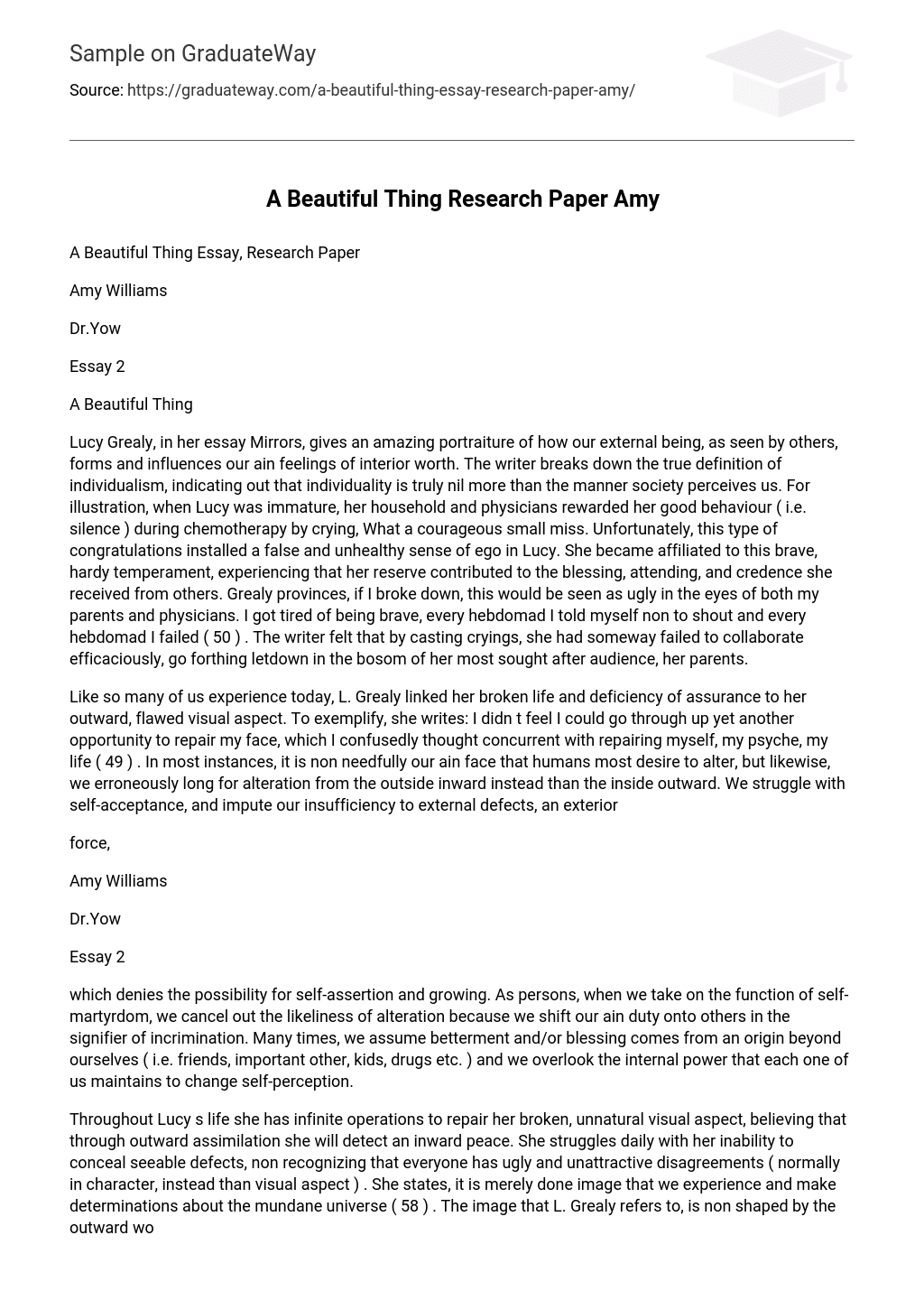Lucy Grealy, in her essay Mirrors, gives an amazing portraiture of how our external being, as seen by others, forms and influences our ain feelings of interior worth. The writer breaks down the true definition of individualism, indicating out that individuality is truly nil more than the manner society perceives us. For illustration, when Lucy was immature, her household and physicians rewarded her good behaviour ( i.e. silence ) during chemotherapy by crying, What a courageous small miss.
Unfortunately, this type of congratulations installed a false and unhealthy sense of ego in Lucy. She became affiliated to this brave, hardy temperament, experiencing that her reserve contributed to the blessing, attending, and credence she received from others. Grealy provinces, if I broke down, this would be seen as ugly in the eyes of both my parents and physicians. I got tired of being brave, every hebdomad I told myself non to shout and every hebdomad I failed ( 50 ) . The writer felt that by casting cryings, she had someway failed to collaborate efficaciously, go forthing letdown in the bosom of her most sought after audience, her parents.
Like so many of us experience today, L. Grealy linked her broken life and deficiency of assurance to her outward, flawed visual aspect. To exemplify, she writes: I didn t feel I could go through up yet another opportunity to repair my face, which I confusedly thought concurrent with repairing myself, my psyche, my life ( 49 ) . In most instances, it is non needfully our ain face that humans most desire to alter, but likewise, we erroneously long for alteration from the outside inward instead than the inside outward. We struggle with self-acceptance, and impute our insufficiency to external defects, an exterior force, which denies the possibility for self-assertion and growing. As persons, when we take on the function of self-martyrdom, we cancel out the likeliness of alteration because we shift our ain duty onto others in the signifier of incrimination. Many times, we assume betterment and/or blessing comes from an origin beyond ourselves ( i.e. friends, important other, kids, drugs etc. ) and we overlook the internal power that each one of us maintains to change self-perception.
Throughout Lucy s life she has infinite operations to repair her broken, unnatural visual aspect, believing that through outward assimilation she will detect an inward peace. She struggles daily with her inability to conceal seeable defects, non recognizing that everyone has ugly and unattractive disagreements ( normally in character, instead than visual aspect ) . She states, it is merely done image that we experience and make determinations about the mundane universe ( 58 ) . The image that L. Grealy refers to, is non shaped by the outward word picture of how others see us in life. Rather, our perceptual experience is molded most by how we personally respond to each platitude experience ( i.e. tests ) and mundane determinations. Like Grealy, at one clip or another, most if us have battled with feelings of inadequacy, ineptitude, and lower status. Self-fulfillment, nevertheless, is ne’er found in another individual s actions ( which are beyond are control ) but it is found in our personal reaction to any state of affairs.
In the terminal, Lucy does hold a process that seems to heighten her societal response. However, it is non some surgery that generates an outward public credence ; it is her self-fulfillment of the priceless, uncomparable amour propre that she finds deep within herself, and that my friend is a beautiful thing.





